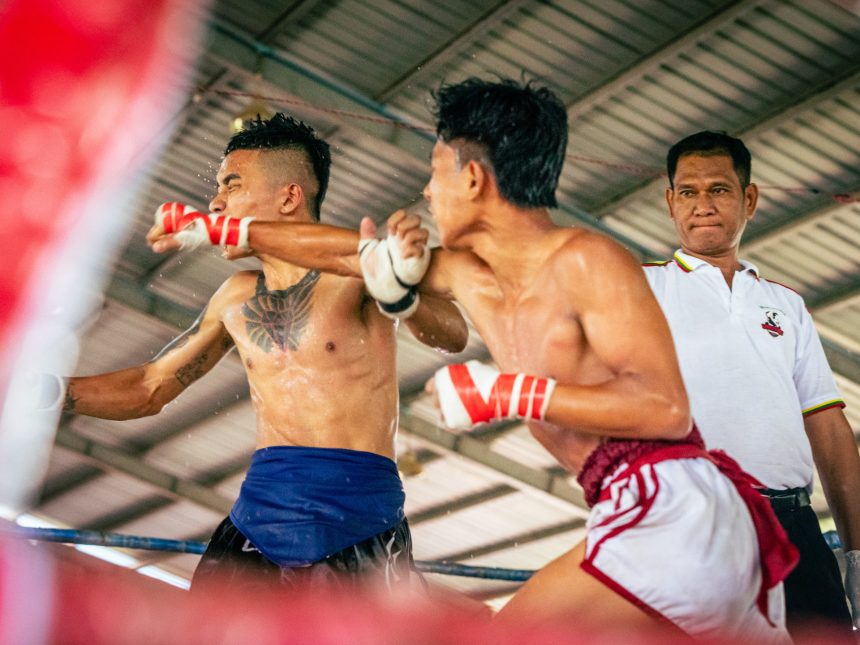In recent months, Myanmar’s Ayeyarwady region has been largely free from the conflict and violence that has engulfed much of the country since the military seized power in February 2021.
The delta, hemmed in by the Bay of Bengal, is isolated from other parts of Myanmar where anti-coup forces have expanded, and is without a land border with a neighbouring country, making it more challenging to secure supplies from overseas.
Inside a hangar, a crowd is pressed around a ring in which arms flail, kicks fly, knees crush into ribs, and, occasionally, a head is violently thrust into an opponent’s face. This is Lethwei.
Myanmar’s brutal national sport is dubbed the “art of nine limbs” for each body part that can be employed in the attack: fists, feet, elbows, knees and, uniquely, heads.
Unlike other martial arts in the region, Lethwei is bare-knuckle, with only thin gauze wrapped around the fighters’ fists to protect their hands.
The country’s beleaguered energy network cannot provide power from the grid, so a generator hums throughout the day.
It powers some strip lights hanging above the ring and a sound system, which strains beneath the distorted cries from the ring announcer as each blow lands.
Power Punch, a team of fighters from Yangon, have made the two-and-a-half-hour journey to this small town to take part in the competition.
Their bouts are an opportunity to fight in front of a large audience, build their and their gym’s reputation in the ring, and earn some prize money.
The team comes away with a win, two draws and a loss. The earnings are not substantial, and some of them have just a couple of weeks for their wounds to heal before their next fight in Myanmar’s capital Naypyidaw.
Sayar Hein, a former fighter and now owner and coach at Power Punch, the experience of a competitive bout is critical for the young fighters, even if they do not win.
“We always speak to the fighters after the fights to determine if they performed well and to correct any mistakes,” he said.










